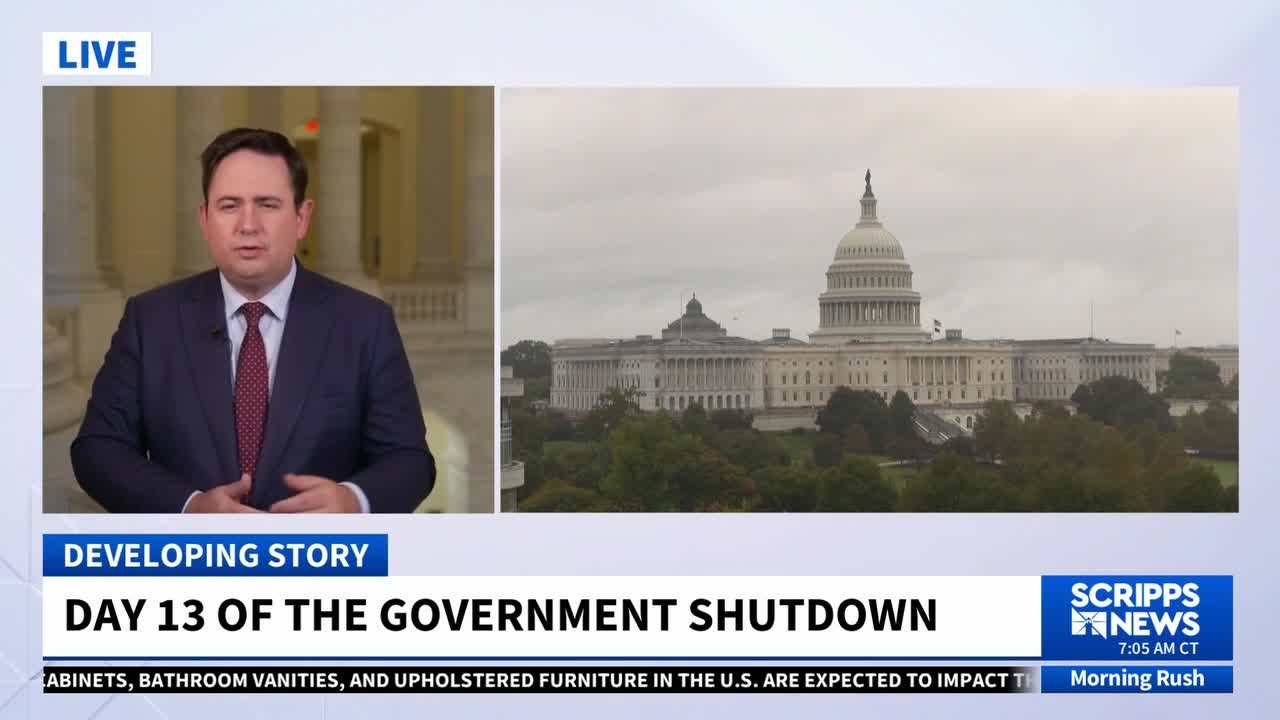House Speaker Mike Johnson warned this could become the longest government shutdown in American history, surpassing previous records as negotiations between Republicans and Democrats remain at an impasse.
"We're barreling toward one of the longest shutdowns in American history, unless Democrats drop their partisan demands and pass a clean, no-strings-attached budget to reopen the government and pay our federal workers," Johnson said during a press conference on Columbus Day.
The Pentagon is redirecting billions of dollars from research programs to payroll to ensure military personnel receive their paychecks as the government shutdown stretches into its 14th day. The Department of Defense discovered $8 billion in unspent funds that will be used to maintain military pay, just one day before payday for the majority of troops.
RELATED STORY | US shutdown drags on; troops to get pay but economic fallout grows
The current shutdown has already exceeded the historical average of eight days for government shutdowns dating back to the late 1970s. The longest shutdown on record lasted 35 days during 2018-2019, resulting in $11 billion in lost economic productivity according to the nonpartisan Congressional Budget Office.
Healthcare Subsidies at Center of Dispute
The primary sticking point remains health care policy. Republicans want to reopen the government first and debate health care later, while Democrats are demanding concessions regarding expiring Affordable Care Act subsidies. Democrats argue that without action, millions of Americans will face higher insurance premiums in the coming months.
IN RELATED NEWS | Trump administration begins 'reduction in force' as government shutdown continues
Traditional pressure points that typically force bipartisan cooperation are being eliminated. Beyond military pay, the Trump administration announced it would use tariff revenues to continue funding the Special Supplemental Nutrition Program for Women, Infants and Children (WIC), which was set to expire this week.
Economic Impact Grows with Each Day
Economists warn that the real economic impact begins when shutdowns stretch into the third, fourth and fifth weeks. Federal workers without paychecks create a domino effect throughout the economy as spending decreases.
The Senate will return Tuesday and is expected to vote again on bills to reopen the government, though these measures are anticipated to fail as they have previously.
Johnson criticized Democratic leadership's approach to negotiations, specifically targeting Senate Majority Leader Chuck Schumer's calls for leadership meetings.
"You've heard Chuck Schumer say breathlessly, I just want the four leaders to get in a back room and make a deal. We're not doing that," Johnson said. "We're getting back to regular order, and it's infuriating that that's what he continues to demand."
As the shutdown continues, both parties believe they hold strong political positions, which political analysts say reduces incentives for compromise. The longer timeline may particularly impact Americans who rely on Affordable Care Act subsidies as they receive notices about increased healthcare premiums for the upcoming enrollment period.
This story was reported on-air by a journalist and has been converted to this platform with the assistance of AI. Our editorial team verifies all reporting on all platforms for fairness and accuracy.




